TOPS, "Sleepwalker"
The only problem with this song is seasonal: The vocals and bass will come through fine, but the guitars sort of get lost in the air conditioner. Anyway: Here are a couple minutes of powerful relief from this oppressive day. [via GvB]
The Hair of War

Have you seen the trailer for Fury? David Ayer, the guy who wrote Training Day and directed the unexpectedly fun End of Watch, about handsome police, has made a World War II movie. It’s both intense and without context: It is not a movie of the moment, or some sort of long-awaited reassessment. It’s just here.
It will probably be, to some extent, a buddy movie; every Ayers film is. The director/writer also told People that he wanted Fury “the ultimate tank movie”, so I guess we’ll find out what that means. In the meantime, let’s focus on the one thing we know for sure about Fury: Hair.
Poster for Brad Pitt’s next movie “Fury” is out — http://t.co/Pu4oNciRXi Dat hair doe
— fey says hey (@heysayfey) June 25, 2014
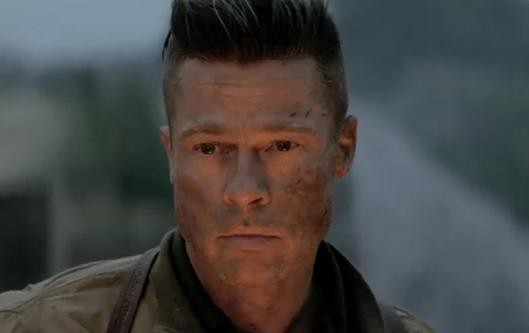
Early publicity shots showed Brad Pitt modeling a conspicuously on-trend cut, which struck some people as odd. That’s the haircut from TV, from the mall, from Styles section photos of Brooklyn, from World Cup 2014! But whatever: Movie characters, especially stars, are permitted to have impossible or anachronistic haircuts. Scalps are like mouths in historical drama, in that they can project whatever time or region they want, so long as they gesture at the past.
So, uh, is anyone going to mention the fact that Brad Pitt’s hair in the latest poster for ‘Fury’ is historically inaccurate?
— Stefan (@Railok) June 24, 2014
Also, this is… not quite right. It would have been possible for an American soldier to have this haircut in 1945! A haircut at that location on the whitewall-undercut spectrum might have been considered a little retro, or perhaps a little Wehrmacht-y, and it would have been less common than other haircuts (tapered/parted, butch, high and tight). But it’s a cut that you could ask for and get, approximately, from a barber on base. THIS HAIR IS DEFENSIBLE, if you feel like defending it. Or at least it was, until the trailer came out:
Very good hair in this film “Fury Official Trailer” http://t.co/0S0KIxGxCA
— Tracie Ching (@tracieching) June 25, 2014
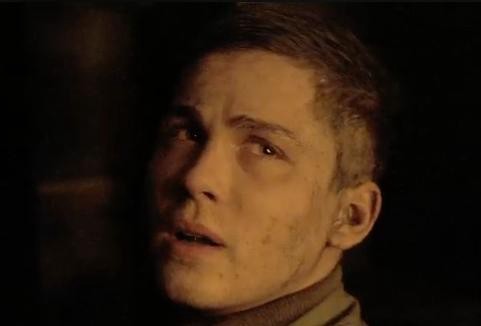
Hair.

Mustache.
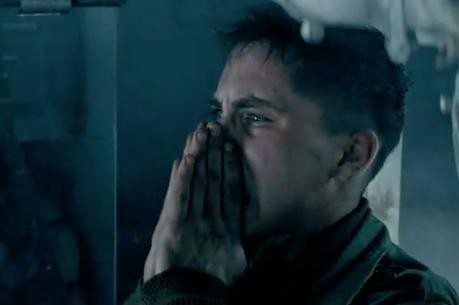
Hair.

Hair.

Hair.

Hair. Hair! This is not a movie about the history of war, it’s a movie about the now of hair. America’s Supercuts franchises are going to have an interesting November.
Correction: Ayer wrote, but did not direct, Training Day, which was directed by Antoine Fuqua. Thanks, Taj!
Ask Polly: How Can I Stop Being a Shut In Once and for All?

Dear Polly,
I don’t really know what my real problem is. I can name an array of problems that I have, but I don’t know if they are symptomatic, causal, imaginary or just plain over-analyzing. I don’t have childhood traumas from which I can say everything started. I only know that these issues manifested themselves when I started university. I’ve kept diaries on and off for long periods of time and am seeing a therapist regularly for the last 1.5 years. Self-help books gather dust because I don’t know if they actually address a problem I have. Or I lose motivation. Ultimately, I feel like I am in stasis.
On the surface, I’ve spent the last eight years in two different universities and I’ve yet to graduate. If that were the only issue, I wouldn’t engage in a self-perpetuating cycle of self-pity, self-hate/destruction and apathy. I’m bad at relationships generally, and I don’t just mean romantically. It wasn’t as much of a problem when I lived a rather sheltered existence as an expat with my family. We had a wide circle of family friends, and my academic ability at the time gave me a confidence to secure good friendships, some of which have been able to last to this day. And all this despite due negligence on my part. It doesn’t help that I’m introverted, self-conscious and have insecurities.
I managed to maintain a bit of this at my first university — joined societies and what with being agreeable and trying to please people. I had friends, very good ones too. But, I have a habit of associating my self esteem with academic ability. When I started withdrawing academically, I became even more of a social recluse than I already was. It became difficult to confront people and my family. On the outside, I mustered up a happy exterior to the world. Otherwise, I fled from reality into an online world of internet friendships, TV shows and movies. This removal doubtless compounded my academic failures and frayed my already strained relationships with my peers.
I know that it is best to be honest about my situation, but I never felt like I was in the position where I could afford to lose the friendships, superficial or not, that I had. I just didn’t have that luxury. It was in the anonymity of the web that I found I could better express myself, more as a listener than a speaker. Helping people made me feel better about myself. It relieved the guilt and shame that would gnaw inside me. And however moot some might think these online relationships are, among the few that flourished, I actually found love with a girl after years of contact. We actually met, but despite her being one of the most wonderful people I have met and being very much in love with me, I ruined it with my neglect. I hurt her a lot.
I thought I’d be honest, in order to make the relationship built on honesty. I told her about how I’d failed year after year at my old university, and now in a different country and uni, was trying a new lease of life on the same degree. But, she then became part of the reality from which I kept running. I never mean to upset her, but I would continually renege on commitments. I went through the same cycles as before. The only difference was that awareness of my relative advancing age gave an added urgency and desperation that things work out. I wanted to make a clean break, and in a foreign country where I’m trying to carve a niche of friends anew, I mentioned my past to as few people as possible. And even then, tried to sanitize it to make myself palatable.
Nothing has really changed. I’ve only become more withdrawn and reclusive. I don’t have any genuinely close friends here, unlike the uni before. And often enough, I sabotage many of my relationships through my self-destructive tendencies. There’s never an outburst; I just become a shut in. It’s not atypical for me to stay days on end within the confines of my dormitory trying to drown myself from reality. Poor dieting, lack of exercise and being trapped in a virtual world are the typical themes of the day. I know they perpetuate my misery, but it’s got to such a stage that I’m slowly growing indifferent to it.
It’s not that I don’t try to get out of this rut. Every semester, I usually begin anew. I force myself to engage with other people, keep up with academics, and go for social/ sport activities, some of which do stick even through the depression. But somewhere, I invariably fall short again. And it’s not that I can’t do the subject material. I know I can because there are times when I really have. But, with every failure and cyclical repetition, it becomes harder and harder to believe in myself, maintain motivation or to live life. I also don’t get much inspiration when I imagine what might await me in the future after so much time in academic/social limbo.
The worst part is, I don’t even know if I have a real excuse for being what and where I am. Sometimes I wish there was a medical condition to which I could attribute everything. My parents always do their best, and have (esp. my father) never made an issue of the expense I am incurring. They’ve even tried to grow more understanding as time goes by. Besides, even if I have issues that stem from childhood, surely I should have been able to move past them in eight years.
I’m sorry if this sounds like a stiff life anthology. I wrote everything because I don’t know where it comes from or what to do.
Polly, do you have any suggestions or pointers?
Lost & Plaintive
Dear L & P,
You do have a medical condition. You’re depressed, pure and simple. There’s no real cause for it beyond your physical make-up and the fact that your parents are footing the bill for whatever you want to do without the slightest complaint — which, while totally generous and loving of them, isn’t actually a hundred percent good for you. When you’re depressed and you can hide in entertainments and games and online relationships and you have no real reason to strive for anything? Well, that adds up to a pretty dire self-perpetuating picture.
I know that you’re reading all kinds of judgment into what I just wrote. You assume that what I mean is, “You’re bad and lazy and your parents are wasting their money on you.” That is NOT what I mean. What I actually mean is: Most people with your biochemical profile are going to struggle with a situation that’s a) amorphous, b) fully-funded and c) offers plenty of escapist options.
When I was 28 years old, I had a dream job writing cartoons that took about two days a week to complete. I worked from home. I made much more money than I could possibly spend as a single person with non-extravagant tastes. I had recently moved to LA and I had a boyfriend but almost no friends in town. Now, for a while, like you, I savored my situation. I painted my entire apartment, trained for a marathon, read great books, wrote lots of songs, started and didn’t finish a few screenplays, etc. I went into therapy. I dumped my boyfriend.
But then I was VERY isolated. I stopped wanting to work out. I had tons of time and money, and I was very isolated and my life had no structure. IT WAS VERY DIFFICULT. Every single day, I had to pull myself out of bed and force myself to make good choices. I often failed. I developed some magical thinking, and I had trouble understanding which relationships in my life deserved my focus. I tended to overvalue weird random friendships and looked at long-term, intimate friendships with suspicion, because they demanded more from me.
Today I was watering the plants in my back yard and thinking back to how terrible I felt back then. Every single day was a struggle to make the right choices. Half of the stuff I did socially was mildly disheartening, if not downright depressing. I didn’t have close friends around me, so I was hanging out with people who didn’t make sense to me. One night, an acquaintance insisted that we go to one of those “cool” clubs with a velvet rope, where the doorman assesses whether or not you’re hot enough to go inside. I remember turning to this acquaintance and saying something along the lines of, “Are we seriously going to the front of this line to let this fucking slice of ass cheese tell us whether or not we’re hot enough to hang out with a room full of spray-tanned fucks?” She just looked at me like I had a shitty attitude. Everyone thought I had a shitty attitude back then.
I did have a shitty attitude. I wanted to move away. I wanted new friends. I wanted my old friends back. I felt like I had to act and mouth the right lines just to keep people from running in the other direction. I couldn’t tell anyone the truth about who I was, not even the dude at the corner store or the woman at the coffee place.
I drank too much and I was narcissistic and self-involved and I was probably horribly boring to be around.
But it’s pretty hard not to be self-involved when you’re incredibly lonely and you don’t have anyone to lean on. It’s also really hard to make good choices when you feel that way. When you’re depressed and aimless, you really do have to pay close attention to what works and what doesn’t work, because the more you hurt yourself and isolate yourself, the harder it becomes to connect with other people.
So you need to accept this basic fact about yourself right now: You’re young and you’re depressed and you have to commit to taking better care of yourself from now on. There needs to be some baseline of self-care that you commit to.
That’s not a temporary thing, either. You’ll have to make really good choices almost every goddamn day from now until the end of your life in order to feel happy. Trust me on that, because it’s true for me, too. If you or I slack off, there’s trouble. If we hide in Twitter or Candy Crush or random sex or even the wrong sort of codependent relationship, there’s trouble. If we sleep badly, or skip our caffeine supplement, or eat four macaroons for breakfast, there’s trouble. We have to remain ever-vigilant about escapist urges. We can watch Game of Thrones, but we can’t play Assassin’s Creed for 10 hours straight. We can have three beers, but not seven beers. We can engage in social media, but we have to set clear limits. We must disable Wi-Fi, early and often. We must sleep eight hours a night. We must eat green leafy shit. We can eat other stuff, but the green leafy stuff has to be the autopilot default.
If you don’t feel like you’re uncovering new ground or understanding a lot about yourself when you see your therapist, you should address that in therapy and consider finding a new therapist. You also need to get on the phone to your parents and tell them you’re depressed. I think your parents need to understand where you are in your life right now. I think you have to come out of the closet and be the complicated person you are, out there in the world, where other people can see you. People like us are EVERYWHERE. It’s not actually that big of a deal to admit that you’re PHYSICALLY depressive. I get that it feels like it is, but trust me. At least half of the smart people you know are either mildly depressed or anxious right now, or they have been in the past. And for most people in the world — MOST PEOPLE — it takes a lot of work and good habits and structure to be happy. When you take work and good habits and structure away? Boom, you’re unhappy.
Some people like us take psychotropic drugs. Many, many people will tell you that’s the way to go. I have LOTS of smart friends who take something. Personally, I favor vigorous exercise five days a week. Anything less than that and I start to falter. Any kind of structure is your friend. Getting out of your cave is good.
Mostly, though, I think you have to accept that you have a certain kind of avoidant/depressive profile that requires care. Your struggle — like mine — stems from your being unforgiving and unkind to yourself. You’re either SUCCEEDING (kicking ass academically, making friends and keeping them entertained and happy, doing all the stuff you’re supposed to do) or you’re FAILING (hiding out, haunting comments sections, watching three seasons of Battlestar Galactica in a row). You are way too hard on yourself, so you reward yourself excessively to make up for it. When someone says “Take care of yourself,” you associate that with drinking a bottle of wine alone, in bed, while watching Mad Men, even though it should mean dragging yourself out of your room to get a little sunlight, to be around people WITHOUT TRYING TO PLEASE THEM ALL OF THE TIME.
People with reasonably ok social skills who avoid socializing often do so because they’ve fallen into a habit of people pleasing in an inauthentic way. They assume that friends and lovers want a certain version of them, that they can’t be awkward and strange and still be loved. You need to experiment with showing people your true self. You feel like you need to put on a show with real people, but you like listening much more. You can bring that into the real world. You can offer real people your listening skills, and still present your thorny opinions and messiness.
But here’s what you can’t do — and this goes for so many people: You can’t just dig a deeper and deeper hidey hole of DVDs and games and email and bad food and no sleep and darkness and nothingness. Most people suffer when they try this; you are going to suffer EXCESSIVELY under these conditions. Remember how I had a great apartment and loads of time and money, and I got all wan and lifeless and lonely? With total freedom, I not only suffered, but I felt horribly guilty for suffering. My world view got really warped; things seemed tragic all around me. Even so, every bit of suffering I felt was more proof (in my mind) that I was a bad mess of a person who didn’t deserve to live a chipper, productive life like everyone else OUT THERE.
So things won’t be good unless you’re not exerting yourself, feeling some sun on your face, working hard at something that matters to you. THIS WILL ALWAYS BE TRUE FOR YOU. The financial support from your parents really should stop once you’re out of school. I totally get that you don’t know what you want to do, and don’t see the point in doing anything. I GET IT, LORD OH LORD YES. But you must force yourself to look over a few different options and you must tolerate finding things out about career paths, things you don’t want to know. You will feel sick when you find out more about careers you don’t care about. You will think, “Who wants to do anything, ever?” That’s your bad physical state and your biochemistry and your lack of experience talking. That’s your accumulated gray worldview. Right now you’re screwing up because YOU DON’T ACTUALLY WANT TO FINISH SCHOOL. Graduating means having to do something. Having to do something feels terrible.
You have to face the future. Your therapist, or a new one, can help there. So can friends that you have REAL relationships with. That means you have to be consistent, you can’t disappear. You have to be honest about WHY you disappear, about your fears and your hiding. The people who like you less for these weaknesses aren’t your people. Plenty of people will understand, and love you for YOU once they understand you better.
This is a tough spot for you. I’ve been there a few times, so trust me: Your life is going to get better and better. Escaping is not going to help. Rewarding yourself in moderation will. But you absolutely must 1) exercise, 2) write down your feelings for you and no one else, 3) eat good things, 4) sleep regular hours, 5) get up early and do your academic work AT THE LIBRARY, 6) expect more from your therapist 7) tell your parents the truth, 8) focus on graduating AND on potential careers, and 9) remind yourself, over and over and over, that things will get better.
THINGS WILL GET BETTER.
You are not any different than almost every single smart person I know. We all went through this kind of despairing stage. We all fall back into it sometimes, even now, and we have to crawl out again. But look, nothing compares to that feeling of aimlessness that comes from being very young and uncertain about what you want from your life. It almost made me feel sick when I thought about it today. So trust me about this one thing: You may never feel THIS bad again.
But it’s also true that being happy and productive and having authentic relationships and CARING about your career goals and the future takes hard work for smart, depressive people. It takes hard work. Years from now, your life will be beautiful, and you will still have some bad days where you wonder if you’re the kind of person who wants to escape or hurt people or destroy everything you’ve gained.
But you’re not. You can show yourself — your real, vulnerable, shaky, scared, sad, worried self — to real people. You’re a good listener, and a hard worker. You’re not fucking up that badly. You just need to tell people the truth. “Just tell the truth.” JUST. TELL. THE. TRUTH. It’s time to start daring to disappoint people — your parents, your friends, your ex-girlfriend. Call them and explain what’s happening to you. You will crawl out of this hole. Be gentle with yourself, but ask yourself to stop hiding.
The second you decide to show your true self to the world, the whole world shifts. You make the world better, when you’re open and vulnerable and you tell the truth. You make space for other people to tell the truth. When you dare to expose your sadness, your weakness, your longing, you set other people free. You give them hope. You make them love this world, in a way that seemed impossible just a few seconds before.
And maybe that’s not JUST a path out of this dark place you’re in. Maybe it’s also your calling. Maybe it’s part of what you’re here to do.
You can start right now. All you have to do is tell the truth. You don’t have to carry this load. Put it down, and keep walking. You are light, and free, and this crazy world loves you just the way you are.
Polly
Do you feel like the depressed, abusive antihero of a critically acclaimed television show but want to upgrade your life to summer blockbusters? Write to Polly and discuss!
Heather Havrilesky (aka Polly Esther) is The Awl’s existential advice columnist. She’s also a regular contributor to The New York Times Magazine, and is the author of the memoir Disaster Preparedness (Riverhead 2011). She blogs here about scratchy pants, personality disorders, and aged cheeses.
Photo by Linda Tanner
'I Want You,' In Order of How Badly You Are Really Wanted
21. Utah Saints
20. Third Eye Blind
19. Martin Solveig
18. Common
17. Bon Jovi
16. Cabaret Voltaire
https://www.youtube.com/watch?v=P74np7B5x_4
15. Thalia feat. Fat Joe
https://www.youtube.com/watch?v=WSnzTXkxRrc
14. Cee Lo Green
13. Kelly Clarkson
12. Cheap Trick
https://www.youtube.com/watch?v=_p0uxvCchUo
11. Bob Dylan
10. Elvis Costello
9. Pulp
8. Fefe Dobson
https://www.youtube.com/watch?v=fYxElyo5w7M
7. Janet Jackson
https://www.youtube.com/watch?v=-sNvrzxn7oA
6. Lloyd feat. Andre 3000 and Nas
5. Savage Garden
4. The Beatles
3. Luke James
2. Fiona Apple
1. Marvin Gaye
https://www.youtube.com/watch?v=6RRCZ0QjM2k
Maura Johnston wants a lot.
Cards Refilled
Cards Refilled
In 2012, the MTA sold ninety-one million MetroCards; after instituting a one-dollar fee on each new card in 2013, it sold just twenty-six million. By shifting eighty-nine percent of sales to refills, the MTA has saved “$3 million in cardstock and eight cashier positions with the initiative.” This is presumably because these cashiers have been replaced by the hulking machines that refuse to take questions from tourists about which kind of MetroCard to buy, and whether the N train will take them directly from Times Square to part of Brooklyn where they film Girls, you know the real Brooklyn, but the machine, the silent machine with the credit card reader that only works half the time, can only offer refills, not advice. (via)
Promotion Accepted
“John Cantarella used to run high-profile Web sites for Time Inc. Now he has a new job: Getting high-profile people to post things on Facebook.”
New York City, June 23, 2014

★★★★ The atmosphere had lost its refreshing edge, even on the way to the morning school dropoff. A touch of haze discolored the distance and thickened the nearby air, yet from downtown, it somehow didn’t diminish the visible skyline. There were so many bicycles on Lafayette it felt unsafe to jaywalk. A bird put enough muscle into singing to be heard over the deep roar of a pavement saw around the corner. The afternoon sky went white, on its way toward light gray. Children left school burdened with bags of collected class papers, cardboard architectural models. Two little girls carried a sideways skyscraper, one at the base and the other supporting the top. Wind blew on Broadway. The sun returned; doubly reflected orange fire filled an east-facing window. The blinds striped the far wall.
Premaking 'Transformers 4,' the Blockbusterest Film of Our Age
by John Lichman
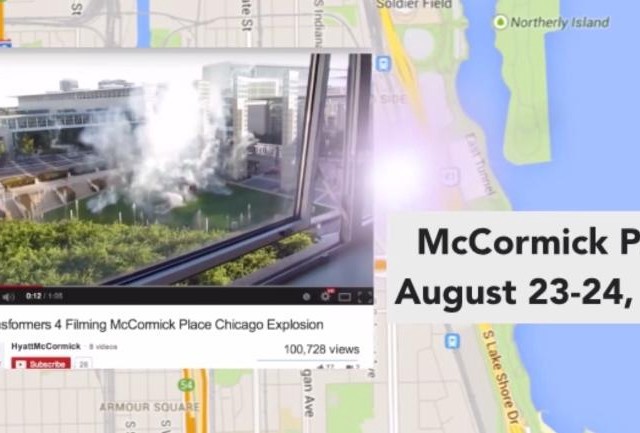
On Friday, Michael Bay will give us another 164 minutes of 3D-IMAX robots riding robots riding robots as they blow shit up in America — Detroit and Chicago — and China — also Detroit, actually — while Mark Wahlberg has to grapple with the fact his name is Cade Yeager. A fete of more than just Bay’s extraordinary vision for setting General Motors vehicles and American military hardware against perfectly golden sunlight shining over a canyon as they race from one Optimus Prime death scene to the next, Transformers 4: The Age of Extinction is both the nexus and the prototype of a new kind of cinema-industrial complex that spans from Hollywood to Beijing.
That’s the focus of Kevin B. Lee’s “desktop documentary,” Transformers: The Premake, which documents the production of Transformer 4, mixing Lee’s own footage of Chicago sets with sources from YouTube, and intricate cartographies of the movie’s shooting and funding. In other words, it’s a documentary about the concept of modern blockbusters and how they are made, not just by Hollywood, but, in some ways, by their most devoted fans. So we a long talk about that, why everything’s coming up China in movies right now, and also what the hell is up with Grimlock.
So what inspired the premake?
I wanted to do a film project that would involve actually being in physical spaces — to have a physical experience related to cinema. It just so happened Transformers was filming in Chicago the first semester of school. I spent six weekends in September and October just hanging out on the production and seeing what I could capture. What I did not expect was the degree of access people had: Where people were filming, all these spectators were just standing around watching, like I was. Gradually, I realized that they were not only filming and taking photos, but putting a lot of this on the Internet.
You’re taking in all of this footage and then what? Is this how the “desktop documentary” started?
I ended up hauling in 355 YouTube videos that were some form of documentation of filming Transformers in all these different locations in the world. I started to play with the footage and and map it out — physically, on a map — to see how many videos were made on a given day, at a given location. It raised all these questions like, “What are they doing in Detroit? Why does Detroit look like China? There’s all this stuff that takes place in a Chinese setting; why don’t they just film it in China or Hong Kong?” By asking those questions, I uncovered all this information about how this movie is engineered to appeal to a Chinese box office, which is supervised by the Chinese government and the demands they have for a big-budget Hollywood movies.
In the film, you get into the Chinese aspect of this pretty fast. Did you come across that in the same way as the original videos?
One little discovery would lead to other questions. What really surprises me about Transformers that I did not anticipate or realize was the extent to which China has essentially co-opted the infrastructure of Hollywood global big budget filmmaking. What I mean by that is that they want to be up there with Hollywood in terms of quality and popularity and impact of their commercial films. It’s just that no one took their films seriously because of the quality of the CGI or the stories or whatever it is people like about Hollywood.
What’s happened with Transformers and these other blockbusters that you’re seeing now is due to the circumstances of China wanting — imposing these demands on Hollywood: “If you want your films to play in the second-largest box office in the world, then you need to follow our stipulations as far as meeting our co-production requirements or being acceptable to our censors.” The thing is, Chinese audiences already like Hollywood movies, so it’s not like they’re necessarily demanding these films to be more Chinese. It’s really an alibi that the Chinese authorities have imposed to make these films more Chinese.
I think where that really matters is in terms of these films being distributed worldwide, because the version of Transformers that we’re going to see is the same version that China is going to see. That’s very different from Iron Man 3; there was a Chinese-only version of the film where they slapped on four extra minutes of two actors talking in Mandarin that caused all kinds of outcry among Chinese critics and audiences. That experiment failed.
The new ground rules are, “Okay Hollywood, you want to make a movie to pass our censors and meet our requirements? It has to be the same movie everyone else sees.” In other words, that Chinese content has to be baked into the definitive version of the film. What this comes down to is the whole world is going to see Hollywood movies with more Chinese content in it.
You feature an interview Michael Bay gives to the Chinese media about filming in this national park and how explicitly it was his choice, not China’s or a producer’s. It’s such a weird moment because he sounds so defensive about the production but he’s clearly filming with the government’s help.
One way I like to think about this is in American terms: What if China spent the equivalent of two million dollars to shoot for two days in Yellowstone or Yosemite or the Grand Canyon? We don’t even do that with Hollywood movies, we don’t even open those sites up. It’s stunning to think money can make that happen in China. But as far as his line — do I agree?
Consider this is a guy who will go with whatever option gets him the most bang for his buck. In Transformers 2 he put in stuff from the sponsors and military because they were giving him such unprecedented access to planes and troops.
It’s stunning that in Chicago, those are military sub-contracted helicopters strapped with 3D cameras that he’s using to capture that footage. He’s using US military resources on the one hand, and Chinese government resources on the other. It’s stunning when you think a Hollywood production can reach seemingly opposite ends of the geopolitical structure to put its film together. I don’t know what to make of that other than it’s just really audacious.
I’d like to go back to what makes this a “desktop documentary.” It’s shown entirely from your home screen and incredibly different than a video review. How’d you come to that setting?
It took a while to get to that point. I was trying more conventional approaches.The first thing I wanted to do was this “Frederick Wiseman”-style of a series of long takes using the footage I had shot, and treating the footage the YouTubers had captured as Wiseman-like documentary footage — a flat-out sequence with very little manipulation. But it seemed like there was more that could be done with it. I tried to do similar to what I’ve done in video essays: Take these clips and narrate over them and analyze them using voice over. That felt too much of an imposition. It was putting too much on the footage. I just started thinking about my whole experience and what was key to discovering the realizations that I made in the process of researching this film; I realized that the Internet had a huge part of providing the raw materials and means by which to investigate them. It speaks to an experience of reality that a lot of us take for granted: We’re constantly looking at the Internet and our mobile phones, our desktops, all the time to learn stuff and understand things. Given that documentary, by definition, is a genre of film that deals with how we look at reality and real-life things, well, the way we look at real life is pretty much through a screen.
People sometimes try to make money off the shakycam footage they’ve caught of movies being filmed, especially if it’s “exclusive.” In the premake, you show that Paramount took down some of these videos but still leave hundreds of others up. What’re the apparent rules for a takedown now?
Maybe there are no rules? They’re being made up as we’re going along about what you’re allowed to monetize. My entire account was shut down at one point because overnight it got three strikes. They had implemented a new copyright enforcement policy because Warner Brothers had filed a list of their properties. Whatever database YouTube had installed overnight instantly came up with three strikes on my account before I had a chance to do anything. That wasn’t a user-friendly implementation — and what I mean about the rules being made up as they go along.
That seems like the best way to talk about your breakout voice: Mr. San 44 Man. He’s so happy about the footage he’s found and how “exclusive” it is. Then you pull back and show four other views of the same location in Detroit made to be China.
I feel like there’s something in our contemporary social media culture that is positioning us as the protagonists of the movie of our lives that we’re constantly making. That’s why it’s called YouTube, not WeTube or UsTube. It doesn’t give you the perspective of other people. Mr. San 44 Man wants to be a star. I connect with that. All of us have this dream of seeing something no one else has seen and wanting to share it, wanting to create something awesome. There’s a little San 44 Man in all of us. I love how uncensored he is in how he presents himself to the world. He really believes he’s got the awesome shit.
When you take in the larger situation that he’s in — he’s in Detroit, there’s not a whole lot of opportunity there and if you look at his YouTube channel, all of his videos are about life in Detroit — he’s trying to make something interesting about a fallen city, trying to be a spokesperson for a city that’s been left behind. It’s just funny when something like Transformers comes along and he says in his video, “Oh yeah, you know I know all you people at Paramount are watching because I met you all and gave you all my card.”
Oh, and you’ve adopted Grimlock as an avatar. What gives?
He’s rumored to be the first Transformer to speak Mandarin because Michael Bay let out in an interview that there will be one Transformer that speaks Mandarin. All signs point to Grimlock — just the design in the movie is very Chinese-inspired. He’s got these horns that resemble Chinese dragon horns. This idea of him being re-engineered and transformed into this different version of himself embodies what this movie is and what it could be.
I love Grimlock. He’s so primitive and so lovable in his clumsy, idiotic, luddite way. He’s considered the dumbest of the Autobots and all the Transformers. I feel like he stumbles upon things, causing all of this havoc by accident. He has this tremendous potential. That’s what I see in this project: stumbling through the world of Transformers and how it’s effecting the world. Not having to be an insider or member of Hollywood cultural elite. Just being a dinosaur, romping through it and seeing what could come through it.
John Lichman is a writer and occasional producer. He has a site he barely updates.
This interview has been edited for length and clarity.
Man Sorry
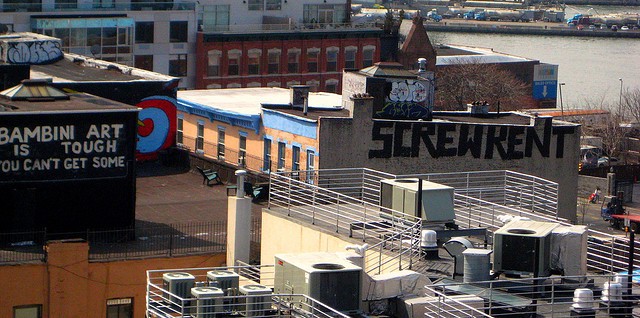
Nearly half of the total rentable apartments in New York City are rent stabilized, which means what it sounds like. Mayor Bill de Blasio, who appointed six of the nine people currently on the board that approves rent increases for these not-quite-a-million rent-stabilized apartments, believed that rents for one-year leases should be frozen this year. Because like, the rent is too damn high and everyone is moving to Ridgewood, since I mean look at these numbers and then these numbers or just about any numbers covering rent and the economy over the last five years.
Neither the fact that de Blasio vocally advocated for a freeze, nor that he appointed a clear majority of the board, apparently mattered at all: the Rent Guidelines Board approved a one per cent increase for one-year leases and a 2.75 per cent increase on two-year leases. Curiously, Stephen Flax, a vice president at M & T bank and a de Blasio appointee, suggested the hike:
It was Mr. Flax who proposed the 1 percent increase as a compromise, saying, “It costs money to run buildings.”
But he apologized for his vote. “I have to vote my conscience,” he said, “and I have to say this moment is a nightmare.”
Everybody has nightmares! Some dream about being a monster; others, like the one third of rent-stabilized tenants who spend more than half of their income on rent, probably have nightmares about things like cutting that monthly check.
Photo by milo tobin
FKA twigs, "Two Weeks"
A gorgeous and unsettling track from the woman who brought us the most memorable video of 2013.
